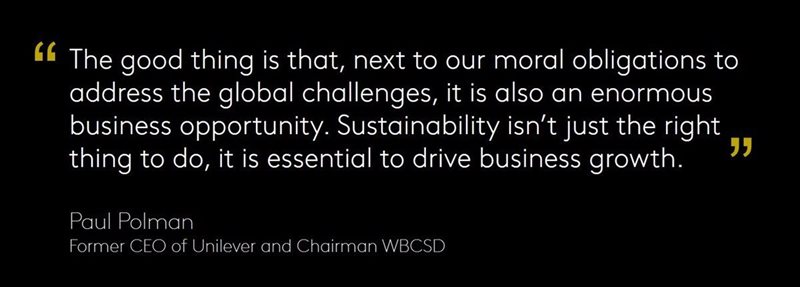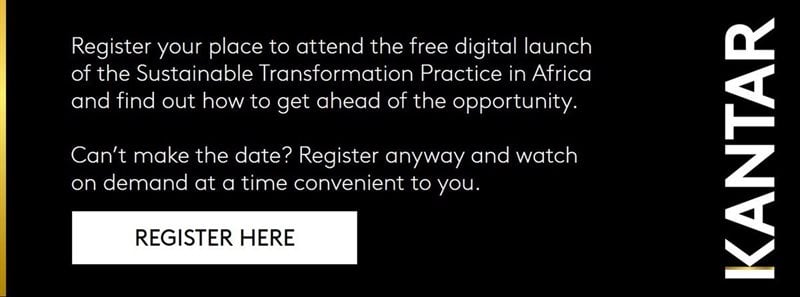As concerns and priorities in Africa have shifted, so too has the role of business - especially in the wake of Covid-19, which has accelerated expectations of brands and broadened the definition of brand purpose. But how do corporations best articulate and act upon their brand purpose, as the interface between corporations and society? By solving the value-action gap.
Brand purpose or identity is generally defined by the category the brand operates in, serving as a basis for meaningful difference and the reason anyone should believe in and buy your brand. But we also need to consider the wider context of cultural relevance and current trends to stay relevant to people’s needs and values. There’s good reason for caution, as brand purpose can even be seen as a distraction or trying too hard to be ‘woke’. Done right, it shows the wider impact of your brand. So, when you commit to purpose, you need to do so wholeheartedly. It’s no longer just about purpose or profit, but about purpose with profit.
In a world where a brand’s back story is instantly searchable, the expanded definition of brand purpose means standing for something beyond your category. It’s informed by a wider social or sustainability lens while also reflected in what your brand represents or stands for internally. But in a resource-strained world where the basic rules for society have changed, it’s about playing a part through positive engagement. Far-sighted business leaders know that a business needs a positive purpose.
This isn’t new. Our eight-wave global Covid-19 Barometer study, conducted among over 150,000 people across over 60 markets globally, showed a clear expectation for companies to step up and meet their obligations throughout 2020. Our Global Business Compass study further revealed that by the end of 2020, a third of all brands were planning to or had already taken such action in supporting society.
Brands of all kinds have stepped up. In 2021, this will likely evolve into a form of shared consciousness and working together for the common good, especially with the Business Avengers’ partnership seeing the likes of Unilever, Diageo, Coca-Cola, PepsiCo and RB teaming up as superheroes of the new decade, aiming to hit the UN’s 17 Sustainable Development Goals (SDGs) by 2030.
Introducing the new brand marketing era of public
A new era of brand marketing is, therefore, emerging, where the focus shift from product to person to public sees ‘better society’ now tacked on to the top of the list. It’s one expectation that won’t wash away when hand washing becomes less urgent, as living through the panic of the pandemic has been a major life event that has shifted the outlook of many.
In addition, with most of the world cooped up under lockdown we got a glimpse of what the world could indeed be like, as pollution cleared to reveal cleaner air and water. This has provoked a significant reassessment of what we want for the future, as we hope to be better prepared for future crises and clearer on what brings us joy.
But, as brands remain commercial entities, there’s debate over whether brand purpose – however worthy – is really the business of brands. The answer is yes, provided your brand purpose is based on the following:
Staying relevant to your audience by understanding what matters to them and the world around us
Your brand can further increase penetration by being an enabler of action, as many experience powerlessness when acting on their own and need a vehicle of scale. That’s why the vast majority of African consumers think it's important to buy products from companies that support causes they care about (Kantar Global Monitor 2020) – and around 50% of Nigerian, Kenyan and South African consumers are prepared to invest their time and money to support companies that try to do good (Kantar Covid-19 Barometer 2020). There’s a real opportunity to facilitate these changes with more sustainable solutions that better meet consumer needs, and consumers are expecting action from brands. For example, 88% of consumers in Africa think it’s important that companies implement programmes to improve the environment (Kantar Global Monitor 2020).
Building brand equity through leadership and responsibility
These are the main drivers of corporate reputation, which, in turn, drives brand equity. Responsibility is now three times more important to corporate reputation than it was a decade ago, indicating a real change in the way business is perceived.
Companies should, therefore, worry about everything from supporting local economic empowerment, to reducing waste and pollution and offering more sustainable products, while taking real steps to reducing their carbon footprint. As African society re-examines the elements of how we live, brands are being forced to do the same and ensure they are building a more sustainable world across categories, because almost 90% of consumers in Africa want companies to be clear on what they stand for and stay true to their values (Kantar Global Monitor 2020). There’s huge scope for positive action. It’s time to take it. This is the age of profit with purpose.
Want to find out more? Get in touch with Astrid Ricketts, client partner for our Africa insight team for more on Kantar's Sustainable Transformation Practice. We’ll support your journey across the spectrum of sustainability challenges, helping you meaningfully define and powerfully activate your sustainability strategy as we track how well you’re articulating your reputation for sustainability across all strategic stakeholders on the continent, using the UN SDGs as a framework with our new Sustainable Reputation Index.
We are excited to share that our Middle East offer will be hot on the heels of the Africa launch, watch this space!









































